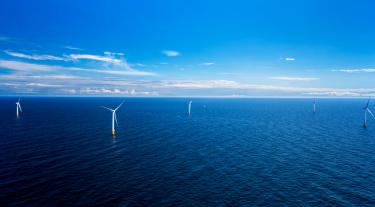Publication date: May 2018
Despite only 50 MW of floating wind power being installed globally, the nascent sector is already gearing up for large-scale commercial projects that could reach multiple gigawatts of installed power by the end of the next decade. The increased scale of deployment will bring new challenges that require innovative solutions to de-risk the technology and reduce costs.
This report outlines the key technology challenges and priority innovation needs for the Floating Wind sector to reach cost parity with other energy technologies. The key findings are a result of the first phase of technical projects delivered through the Floating Wind Joint Industry Project (JIP) in 2017 which has been established to accelerate the development of these solutions, starting with a focus on electrical systems, mooring systems, and logistics for construction and operation.
The Floating Wind JIP is a collaborative research and development initiative between the Carbon Trust, Scottish Government, and twelve leading international offshore wind developers: EnBW, ENGIE, Eolfi, E.ON, Iberdrola, innogy, Kyuden Mirai Energy, Ørsted, Shell, Statoil, Vattenfall, and Wpd.
Related links


